It has been one year since we launched a program to uplift the livelihoods of smallholder cacao farmers and fishers in five villages in Papua. With a strong focus on promoting sustainability and inclusivity, this program aims to foster lasting impact for these communities by prioritizing three key commodities: cacao, fish, and seaweed. With a three-year timeline and funding from the Ministry of Foreign Affairs (MOFA) Japan, the program boasts a range of interventions to solve a variety of complex challenges.
Year one has focused on three main activities, the establishment of innovation hubs that serve as multipurpose facilities for smallholder farmers and fishers, introduction to simple technologies such as solar dryers and fish cooling solutions, and training on technology use and management of the innovation hubs.
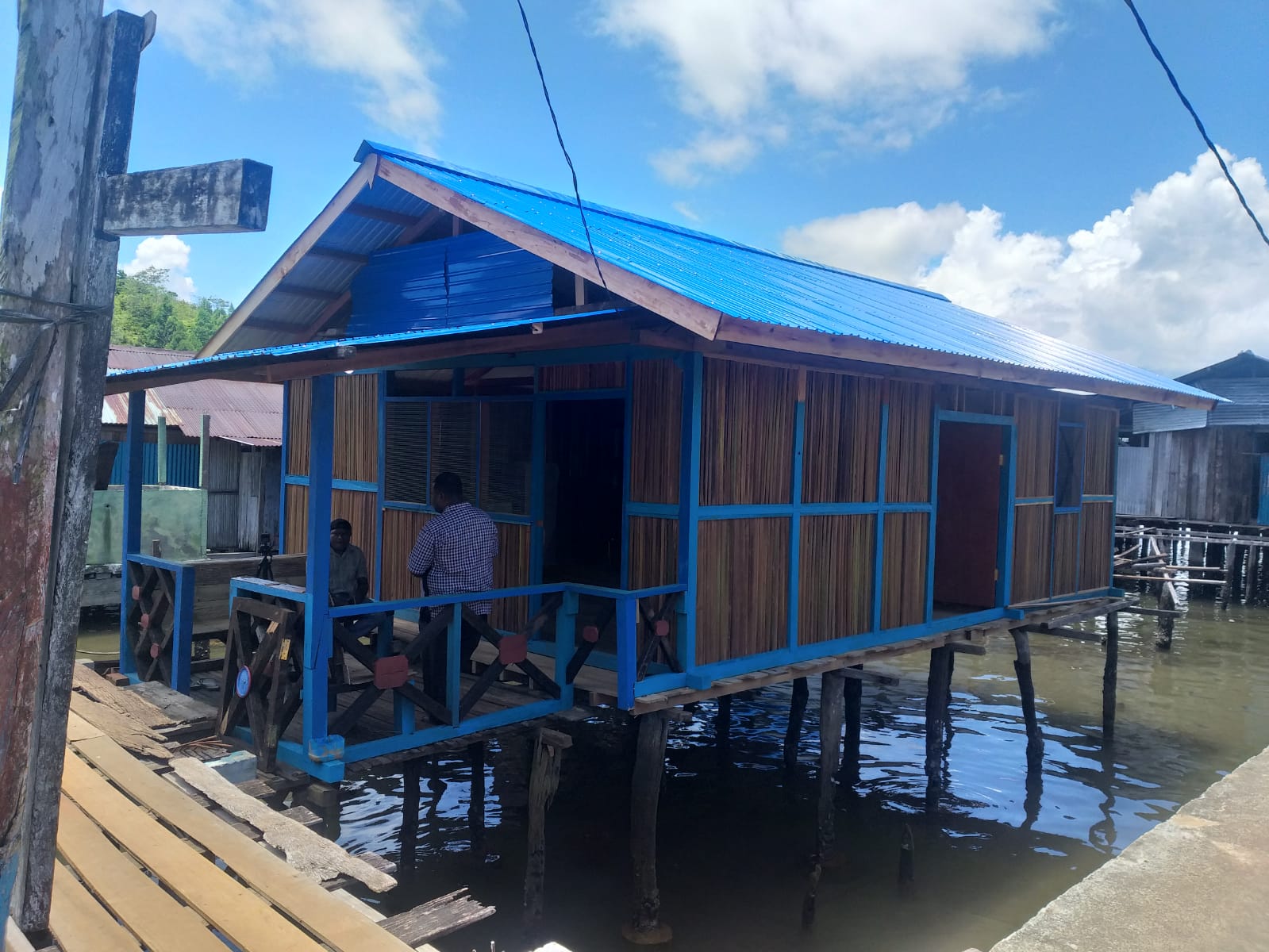 SIHUB or Smallholder Innovation Hub – a multipurpose facility for the local community
SIHUB or Smallholder Innovation Hub – a multipurpose facility for the local community
These innovation hubs are simply called SIHUB, which stands for Smallholder Innovation Hub. SIHUB serves as a multipurpose facility that can be utilized as a training center, meeting venue, and shared storage facility for the local community. In 2022, we established three SIHUBs. The locations are in Tablasupa and Kendate for fishers and seaweed farmers, and in Sabeyap for cacao farmers. To ensure the smooth and efficient operation of the SIHUBs, Kopernik provided training on how to run the centres and record-keeping to newly-recruited SIHUB staff.
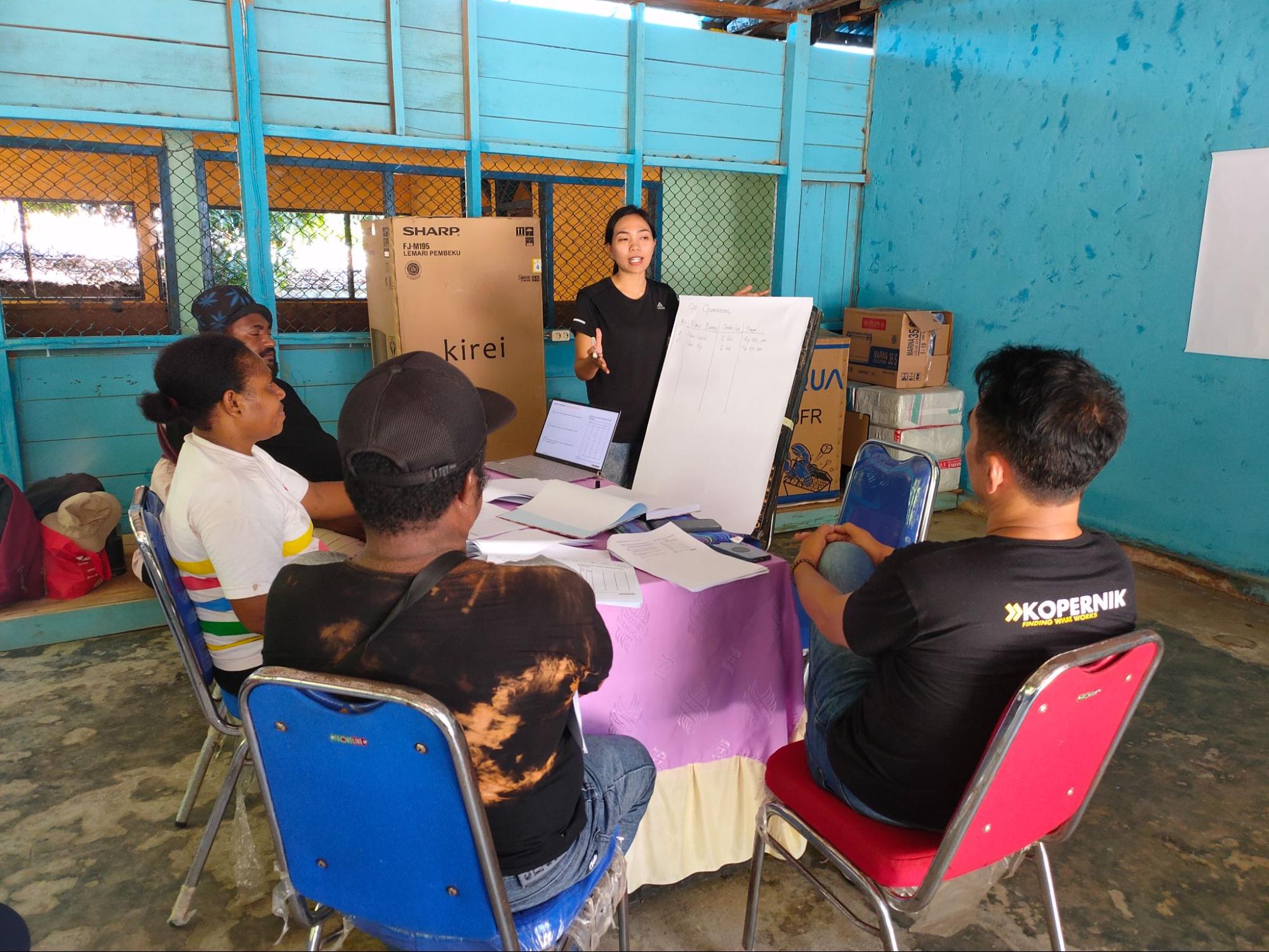 Operations and record-keeping training for newly-recruited SIHUB Staff
Operations and record-keeping training for newly-recruited SIHUB Staff
Since launching, many farmers and fishers gathered in the SIHUBs, which have started to become hubs of activity, empowering local fishers with the tools and knowledge they need to thrive. One of the activities held in the hub was the introduction of simple technologies to support the farmers and fishers. In Tablasupa and Kendate, for instance, we introduced reusable gel ice packs and insulated containers to fishers to replace ice packaged in single-use plastics and styrofoam boxes, which pollute the environment and do not maintain the freshness of their catch for as long as the ice packs and insulated containers. Over 100 participants joined the two-day training.
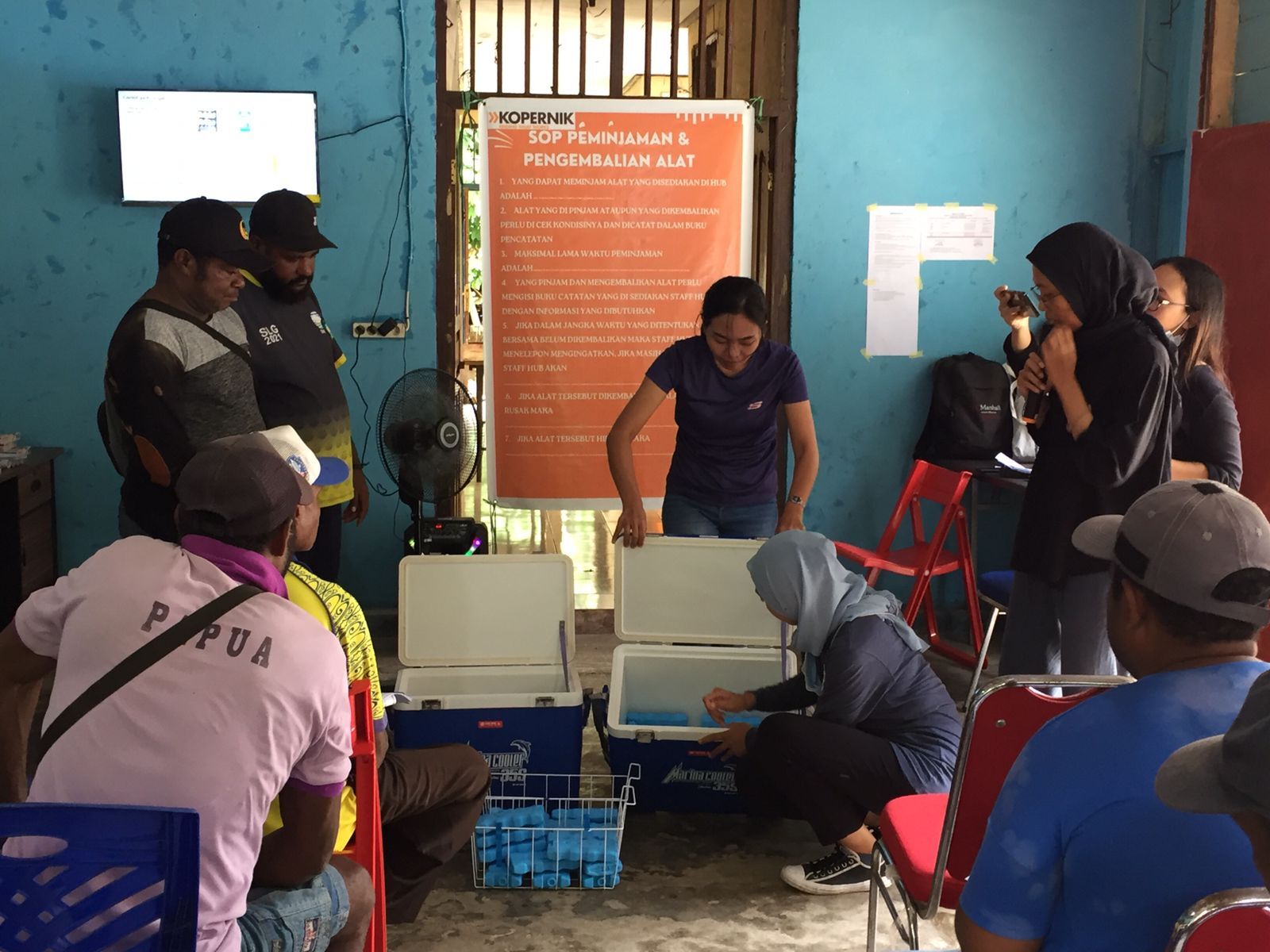 Introducing gel packs and insulated containers to fishers at SIHUB in Kendate
Introducing gel packs and insulated containers to fishers at SIHUB in Kendate
These cooling technologies are available at the SIHUBs for fishers to borrow and use. What might sound like a very simple technology can have a significant impact for the fishers. The simple cooling solutions can keep their catch fresh longer, enabling the fishers to access more distant, lucrative markets, and reduce food waste.
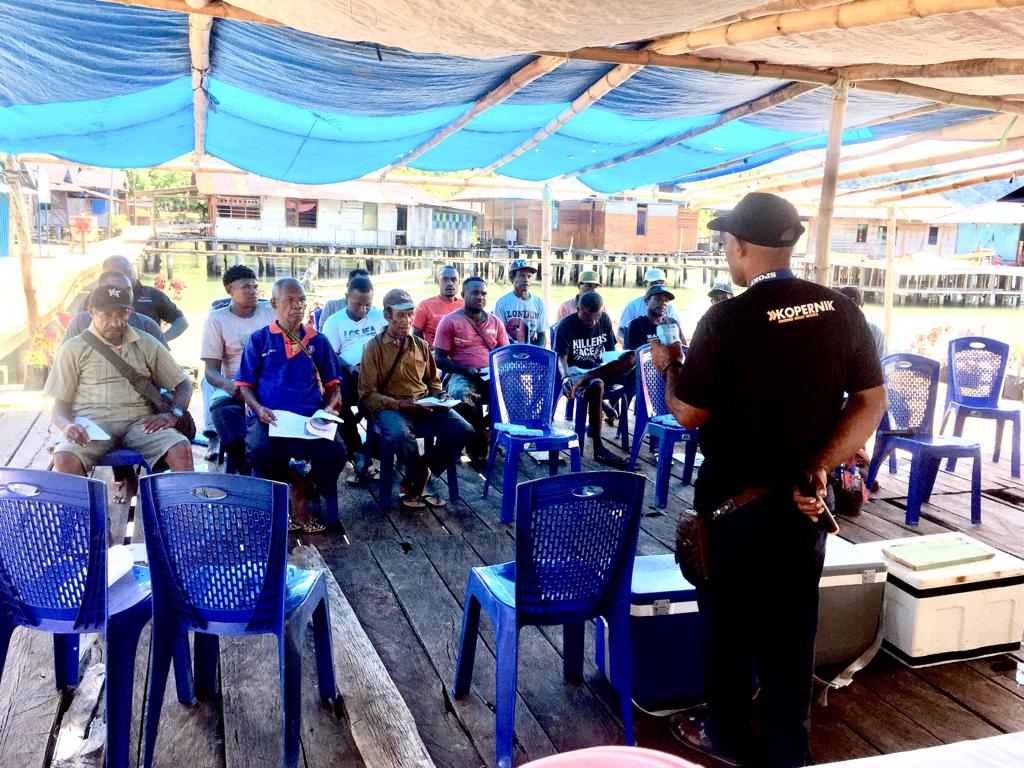 Training on how to prepare and use ice packs and insulated containers in Tablasupa
Training on how to prepare and use ice packs and insulated containers in Tablasupa
John Sato, a fisher from Kendate village, has begun using the gel ice packs borrowed from SIHUB. He commented that more gel ice packs are needed to keep his catch fresh so he combines them with conventional ice blocks. Through this method, John is able to extend the preservation of fish for more than 24 hours.
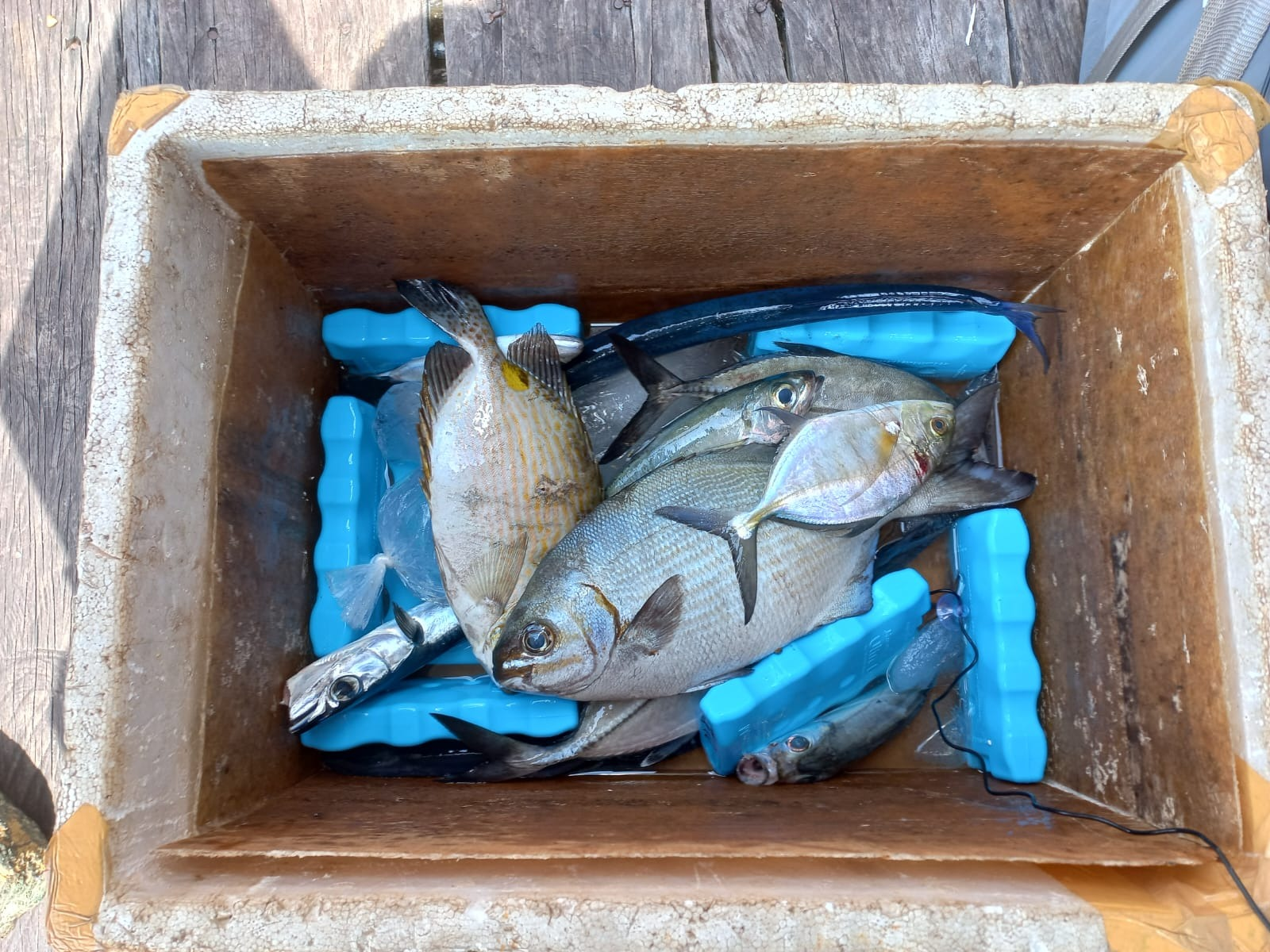 Ice packs being used by local fishers
Ice packs being used by local fishers
Good news is also coming from SIHUB in Sabeyap, which is supporting the smallholder cacao farmers in the village. Five solar dryers for cacao beans have been built and introduced to the farmers. Introduction sessions on how to use the technology were attended by 58 cacao farmers. These technologies enable farmers to shorten the crop drying process, decrease moisture content and prevent contaminants from reducing the quality of the crop, leading to a significant improvement in price.
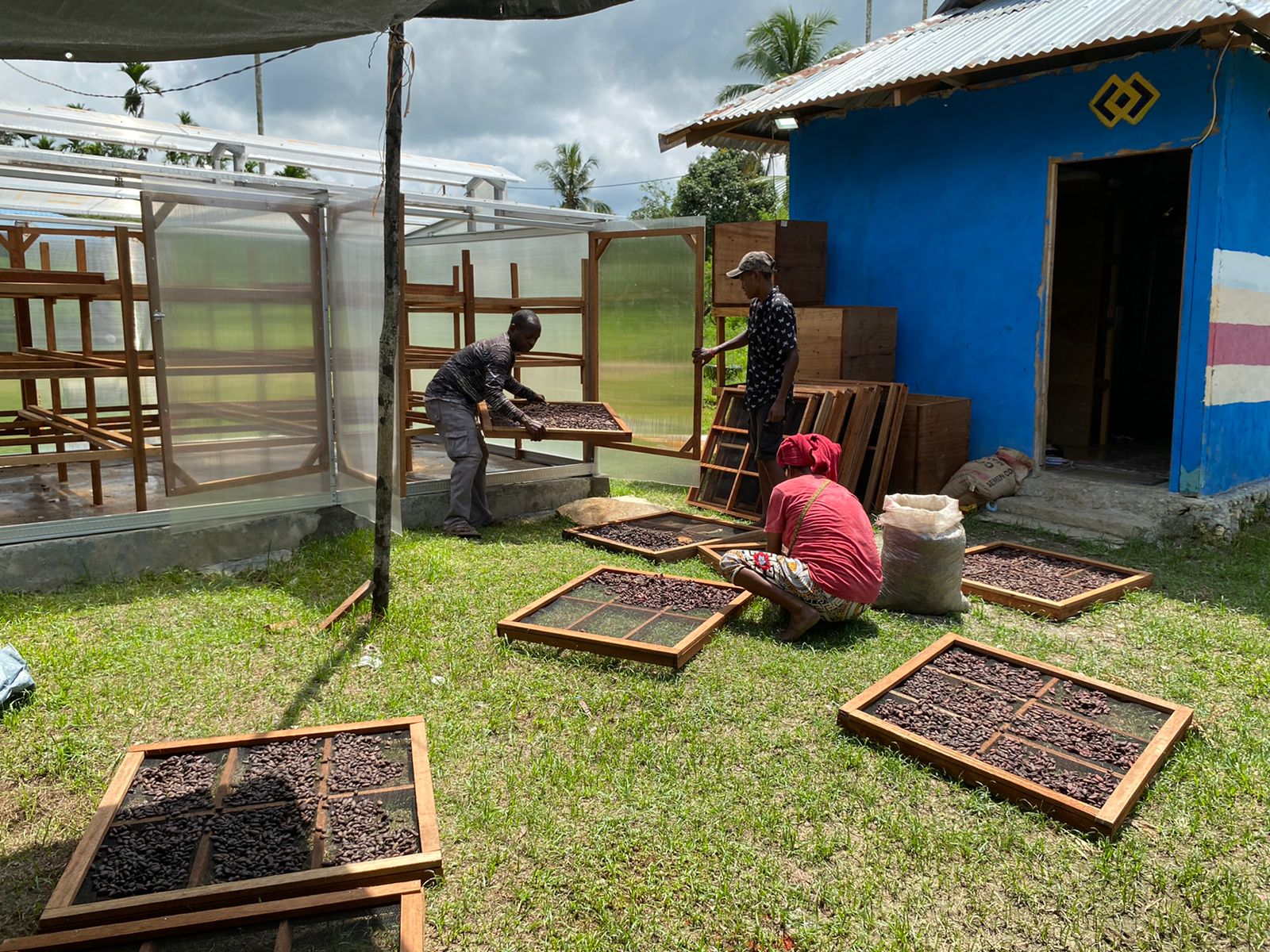 Solar dryer for cacao beans in Tablasupa
Solar dryer for cacao beans in Tablasupa
Yulianus Baho, one of the farmers who participated in the training program, expressed his deep appreciation, saying, “I feel incredibly fortunate to have been a part of this program”. Equipped with newfound knowledge of the process of fermenting and drying cacao beans, Yulianus now possesses the skills he needs to enhance the quality of his cacao harvest.
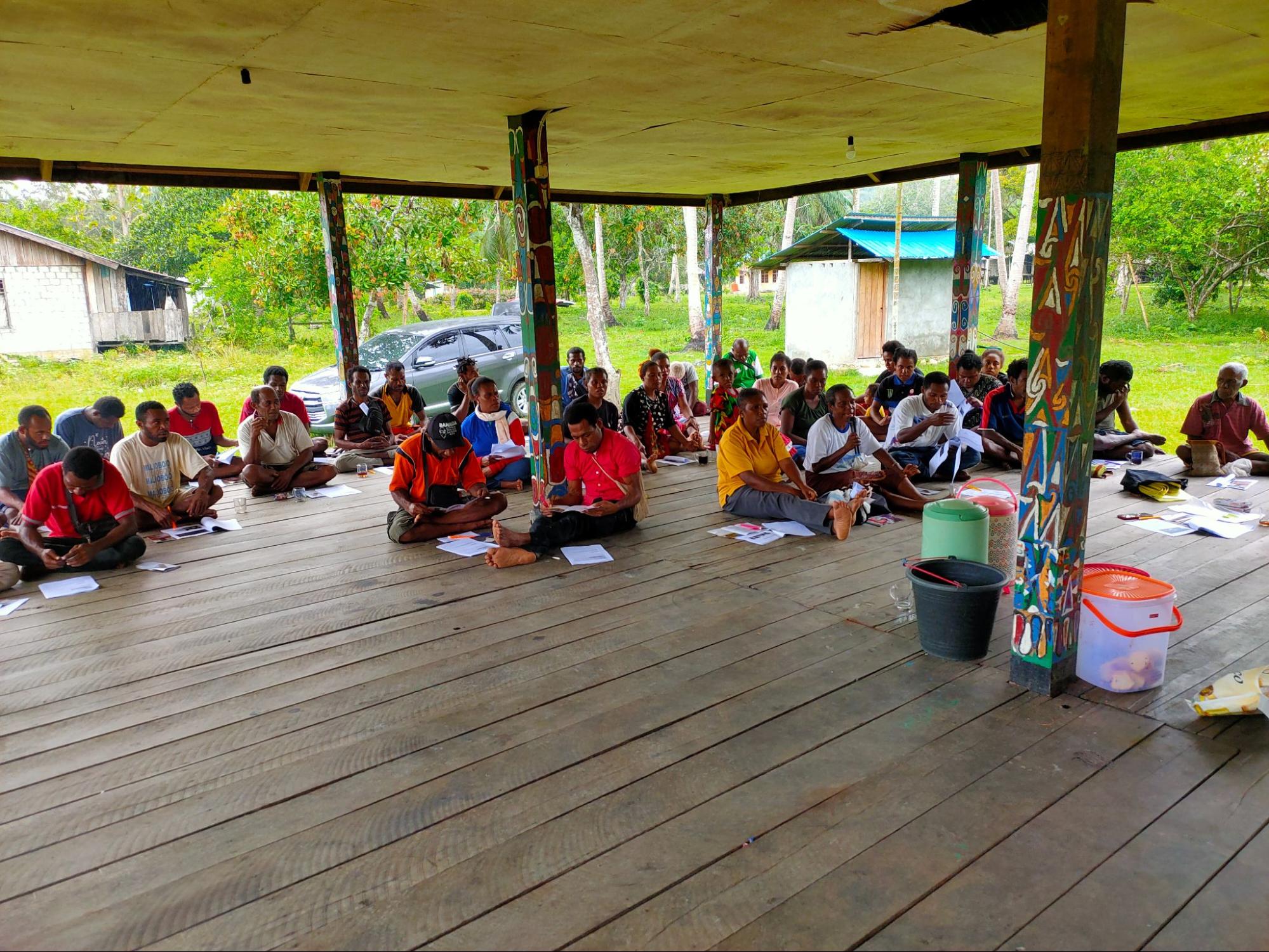 Farmers participating in the introduction to solar dryer technology
Farmers participating in the introduction to solar dryer technology
These SIHUBs have now become a ‘second home’ for these fishers and farmers where they can meet, discuss, and thrive together as communities.
As we embark on the second year of the project, Kopernik, together with our partners and communities, remains committed to creating sustainable solutions for Papua's agricultural and fisheries sectors. We will continue to provide support to expand the market network, introduce fish processing technology, and provide training in areas such as sustainable fisheries, good agricultural practices, and product development. By sharing knowledge and skills, we aim to empower the local communities to take control of their own economic and environmental sustainability.


